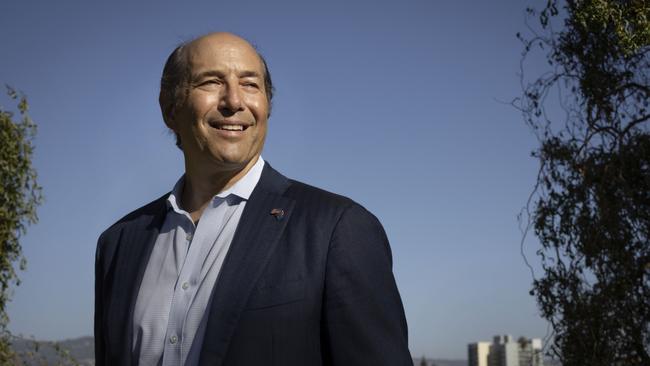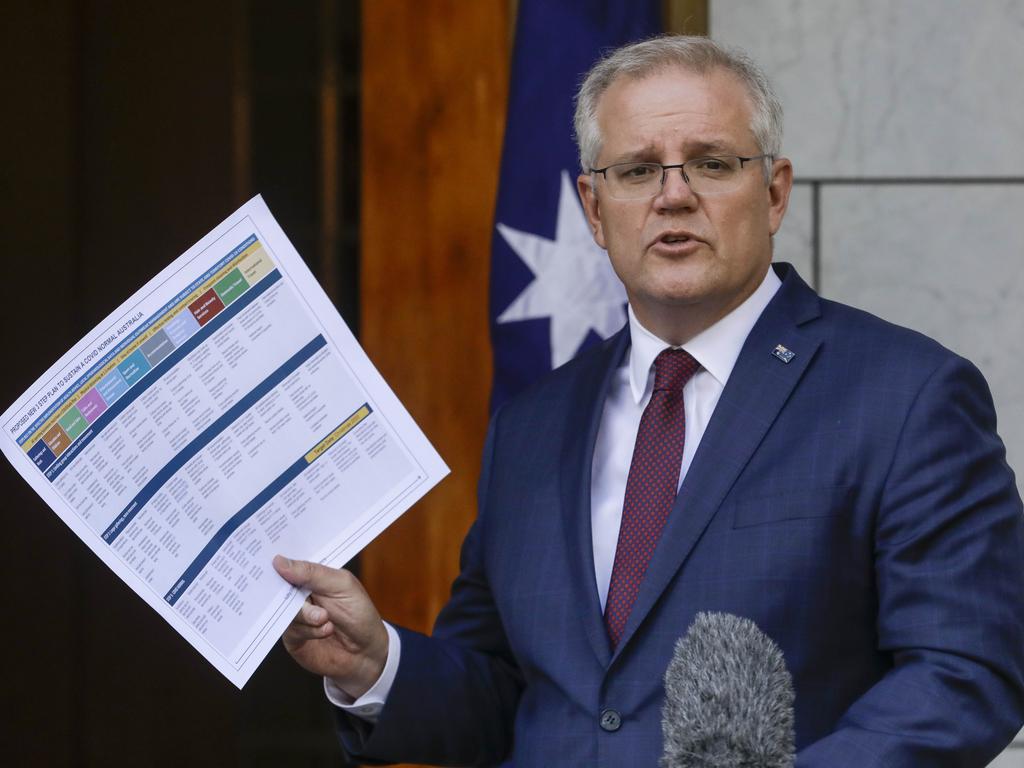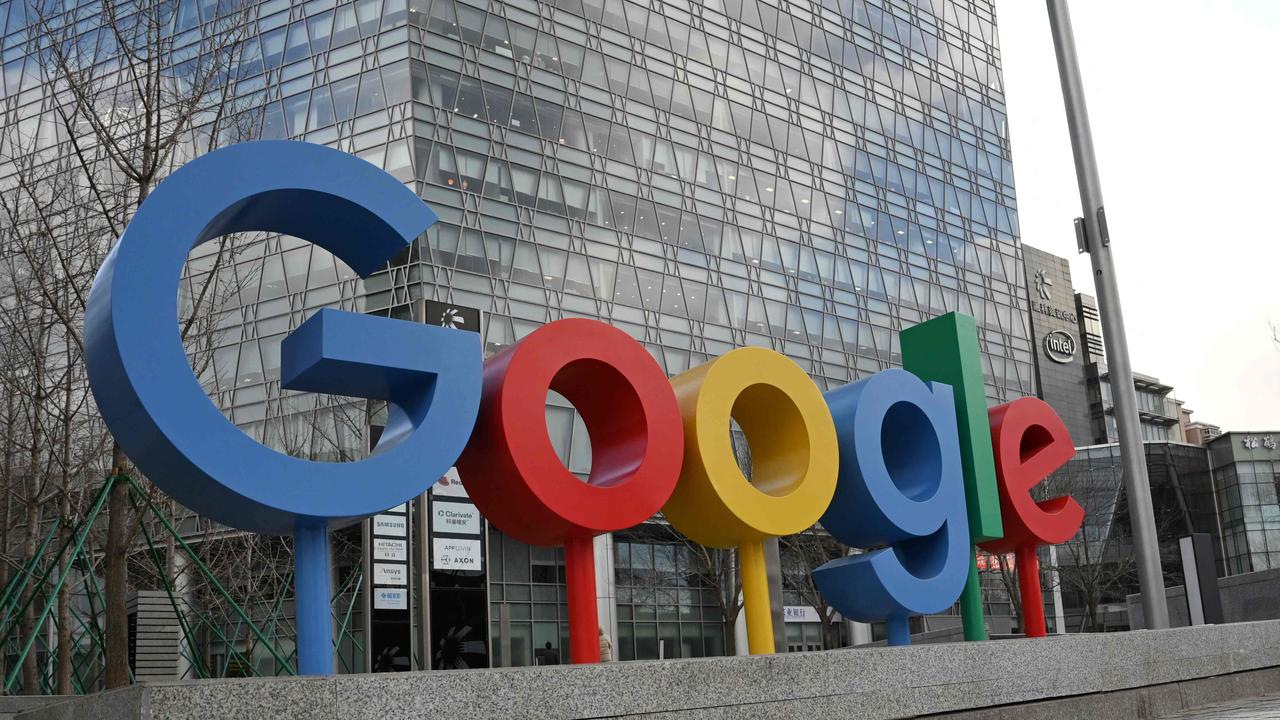Nuix’s noble role: making sense in a time of confusion
Former US ambassador to Australia Jeffrey Bleich has found a place at the intersection of law, politics and technology with forensic software company Nuix.

When Joe Biden took to the stage in his home town of Wilmington last Saturday night to accept the title of 46th President of the United States to the strains of Tina Turner’s Simply The Best, there was one well-known Democrat missing from the crowd.
For many past presidential elections Jeffrey Bleich, a former US ambassador to Australia and special counsel to Barack Obama during the first year of his administration, has been with the candidates during their acceptance or concession speeches, to celebrate or console.
But on November 7, the COVID pandemic meant Bleich was at home in San Francisco with his wife Becky. Together they toasted Biden’s speech with their “Joe 2020” wine glasses.
“As someone who thinks we need to rely on data, on science, on informed opinions by experts, and on an innate sense of compassion to make good choices, the thing I felt most was relief,” Bleich tells The Weekend Australian of his emotions that evening.
“Democracies suffer when people don’t know what’s true and they don’t know who to trust to look out for them. I thought the president-elect and vice president-elect struck just the right tone. Malice towards none, charity towards all, a clear set of priorities, and a heart that cares for every person in our nation.”
Bleich has long believed that data management and data hygiene are an imperative for businesses and for people. It’s one of the reasons he agreed to join the board of the Macquarie Group-controlled forensic software company Nuix in 2017.
Now, as Nuix prepares to list on the Australian Securities Exchange next month in the biggest IPO of the year, Bleich is stepping up to be its first public chairman.
The former diplomat first came across Nuix, whose software allows users to process and make sense of huge amounts of data, in his work as a Californian lawyer, because of the firm’s business discovery software.
He developed a greater interest in Nuix when it expanded into cybersecurity. During his three-decade legal career, Bleich became a specialist in complex litigation with a particular interest in cybersecurity issues, intellectual property and international disputes.
“It is a company really invested in doing things I believe are important for society. For us to trust each other as a society, if we are going to know what is true, which people are dependable, you’ve got to have a product like this that allows people to evaluate large fields of data in real time,” Bleich says.
“I spent a lot of time after being ambassador thinking about where I could have the greatest impact and realised it is at the intersection of law, politics and technology. We are generating this technology that is fundamentally reordering the world.“
Nuix generated more than half its revenue in North America in 2020, with advisory firms like Deloitte and Accenture among its biggest customers, but it also has extensive relationships with the US government and law enforcement agencies.
Bleich doesn’t expect the election of a Biden administration to affect its business.
“That is just going to move forward. I don’t see there will be any difference in the incentive and desire of the US government to work with us,’’ he says.
While Nuix works with responsible companies and governments, what worries Bleich most is that there are governments in the world that have no such principles and priorities.
He believes data will either serve humanity or overwhelm it, depending upon how it is managed.
In this context he worries about the relationship between the US and China, which became deeply strained in the final year of the Trump administration, catching Australia in the middle.
The consequences of that are now being seen in China’s increasingly belligerent threats to close its markets to Australian exports.
Bans have been mooted for sugar, copper ore and concentrates, wool, lobsters and wine after punitive action has already been taken against Australian barley, beef, timber and coal.
But Bleich sees the trade wars as just “the tail on the dog”.
“The real issue is a rule-of-law challenge. What is the world order that you are looking at and are you going to have countries that are effectively authoritarian with digital technologies that are used to control their own populations and the populations of partners where they have made large investments?
“The US approach is much more the traditional world order where if you give everyone a chance to succeed through using these technologies and you make sure they are not weaponised, then we are on the path to a much more stable and predictable world that benefits everyone.
“There is going to be a tension there and trade will only be one of those levers. If we don’t get that right, it is going to be a really complicated world.”
In April Bleich joined San Francisco-based autonomous vehicle technology company Cruise as its chief legal officer. Before that he was a partner at the global law firm Dentons, where he was a leader of its global diplomatic consulting group.
He is no stranger to public company boards, last year taking on the chairmanship of US utility giant PG&E, which filed for bankruptcy protection after amassing tens of billions of dollars in debt related to devastating wildfires in northern California caused by its equipment.
He left the board in May this year as PG&E emerged from bankruptcy.
“They had a terrible set of challenges. I was brought in as part of a SWAT team to help them work through a whole set of issues — to emerge from bankruptcy, own up to their responsibilities and come up with a new vision, especially for wildfire mitigation,” he says.
“I did that until we successfully emerged from bankruptcy and we got through a year without a fatality from utility-caused wildfires. It was a good moment for me to think about a board where I could have an impact.”
On one view his PG&E experience should make Nuix a far easier proposition.
But already Bleich has seen the agendas at play when substantial money is to be made in a sharemarket float process.
In 2017 Nuix’s long-time chief executive Eddie Sheehy left after falling out with former chair Tony Castagna, who subsequently spent 14 months in prison after being convicted of tax evasion and money laundering.
Castagna’s conviction was quashed by the NSW Court of Criminal Appeal last year, allowing him to return to the board. He is now set to make a fortune from the float of the company, which is 65 per cent-owned by Macquarie. Its shareholding will fall to around 30 per cent after the listing.
In October Sheehy lodged an application in the Federal Court claiming that Nuix treated him unfairly and differently to every other shareholder and option holder in relation to a 50:1 pre-IPO share split that massively diluted the value of his option package.
Asked if he is concerned about Castagna’s past and ongoing issues with the former CEO casting a cloud over Nuix, Bleich says it is not his place to comment on litigation matters or past events.
“It‘s been a real privilege serving on the board with Tony. I’m grateful to him and the hundreds of dedicated employees, including Eddie, who have made Nuix the company that it is today,” he says.
“And I think that’s all that investors really care about now: Nuix today. They want to know the value of the company and its prospects for the future. To me, the answers to both seem very positive.”
As a public company Nuix plans to focus on strategic acquisitions to build a network of partners that can provide complementary delivery and market expansion capabilities and support new implementations of its software.

It has also developed a pipeline of potential channel partners to drive the resale of Nuix products.
But Nuix chief executive Rod Vawdrey says one of its most important tasks post-COVID will be helping organisations understand data hygiene in the new virtual world, with the switch from the workplace to the home.
“One of our fastest-growing areas is understanding what happens in Microsoft Teams data. Teams a year or two ago was a novelty. Now it is the way we work. We are already seeing the tailwinds of the enormous data created by the COVID situation,’’ he says.
Bleich says COVID-19 showed how much we rely on technology.
“Every conversation now is a digital exchange and you are generating data constantly. Understanding what you are producing and managing it will be essential for people to operate effectively in the future,’’ he says.
Which brings us back to Joe Biden.
Ask Bleich what should be the three most important priorities for the president-elect and top of the list is to immediately demonstrate leadership in reversing America‘s performance in managing the pandemic.
Bleich also believes Biden must restore confidence in government by picking some trusted people to serve with him, and provide stimulus and job opportunities to help people manage through the crisis and maintain hope.
“Those steps will make sure he has the capital he needs to deal with other domestic and foreign policy issues where he’ll need the support of all Americans,” he says.
The world’s biggest economy looks set, though, for a period of turmoil as Donald Trump won’t go easily or quietly. The Democrats did not deliver the knockout blow many expected. Division in America remains rife. But Jeff Bleich has always been a glass-half-full type of character.
“I am not worried about the size of his victory,’’ he says. “He secured the most votes of any president in history even though his supporters had to brave a pandemic and threats of street violence. He also flipped five states. Our elections are always close, but those statistics tell me all I need to know that there’s a real hunger for Joe Biden’s kind of leadership.”








To join the conversation, please log in. Don't have an account? Register
Join the conversation, you are commenting as Logout